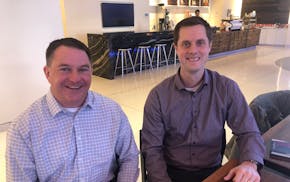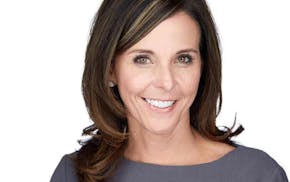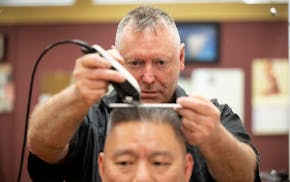The spinout from Cargill's former financial-investment arm of what is now Garda Capital Partners in early 2016 has worked for the fixed-income specialty investor that was acquired by three of its senior managers.
Cargill, with the Garda spin and related divestitures, was completing a restructuring around its cornerstone farm and food businesses.
Garda moved to downtown Minneapolis, doubled assets under management to $4 billion, and also grew its number of institutional clients and employees.
Garda operates below the radar for all but insiders and close watchers of the investment genre known as alternative investments, such as private equity and hedge funds.
However, Garda, received a public endorsement this month from Affiliated Managers Group (AMG) of Florida. AMG, which oversees about $775 billion in assets under management, makes equity investments in boutique investment management firms. Publicly held AMG plans to acquire a one-quarter stake in Garda later this year.
Garda CEO Jeff Drobny, 53, who has run Garda since it was launched as an investment strategy inside Cargill's former Black River Asset Management in 2003, said Garda has proved that it can grow successfully for clients by "sticking to its knitting," with an "all-weather investment strategy that delivers strong, risk-adjusted returns through [various] market cycles.
"We've never had a down year in 15 years," Drobny said.
Garda's "fixed income relative value strategy" seeks to exploit opportunities in interest rate disparities across global markets and various types of government bonds.
Garda has proved a nimble player in the huge fixed-income markets for government securities.
Garda manages capital for institutional investors such as pension funds, endowments, insurance firms and health care corporations.
They each put a relatively small portion of their portfolios into specialty investors such as Garda for diversification purposes.
According to Preqin of New York City, which tracks alternative-investment performance, Garda's flagship strategy has returned 7.8% annually, net of fees, over the last 15 years.
It is considered a strong performer in its category.
Garda charges 1.5% of assets annually plus 20% of any gains. Some hedge funds charge as much as 2%.
Garda doesn't guess interest-rate moves but tries to take advantage of "dislocations'' in the bond market.
"We're old school," Drobny said. "We use technology to create filters to monitor markets but our investment theses are developed by investment staff, not computers. We spend time understanding supply and demand in our markets. And who is 'long' and 'short' and why. And likely what will be their next move."
Garda often employs a "long-short" approach that involves buying securities it expects to increase in value and selling short others.
Garda does best amid investor uncertainty and as stock-or-bond consensus swings.
"Our trading strategy works best when market volatility is high," Drobny said.
The firm, which employs 71, is based in Minneapolis and also has offices in New York, Geneva and Copenhagen. Garda is named for a famous northern-Italian lake that is Drobny's ancestral home on his mother's side. AMG CEO Nathaniel Dalton told analysts and investors earlier this month that AMG is buying its minority stake in Garda because of its "differentiated strategy and a highly attractive asset class, distinctive return streams and outstanding long-term investment track record across market cycles. Garda serves a diversified set of sophisticated institutional clients around the world.
"We believe, they have excellent long-term growth prospects and are very excited to partner with Jeff Drobny and his team," Dalton said.
Dalton said AMG will pay 8 to 10 times Garda's pretax earnings of about $15 million for just under a quarter of the firm. That indicates a total market value of Garda of at least $480 million.
"The value we see in [AMG] was to help us achieve our objective of being built to last," said Drobny, who was joined in buying Garda from Cargill by Garda partners Tim Magnusson and Robert Goedken. "We want to be multigenerational."
Hedge funds and private-equity operators can get into trouble or dissolve when the founders cash out and retire, over succession issues, or the firm tries new strategies beyond its expertise.
"AMG's model seeks to preserve our culture," Drobny said. "We didn't want to just be absorbed."
Neal St. Anthony has been a Star Tribune business columnist and reporter since 1984. He can be contacted at nstanthony@startribune.com.

St. Anthony: 'Patient' investing paying off for St. Paul's Hill Capital

Jennifer Smith, leader of Burnsville's Innovative Office Solutions, has died

St. Anthony: Medical professions in Minnesota need more people of color in their ranks



